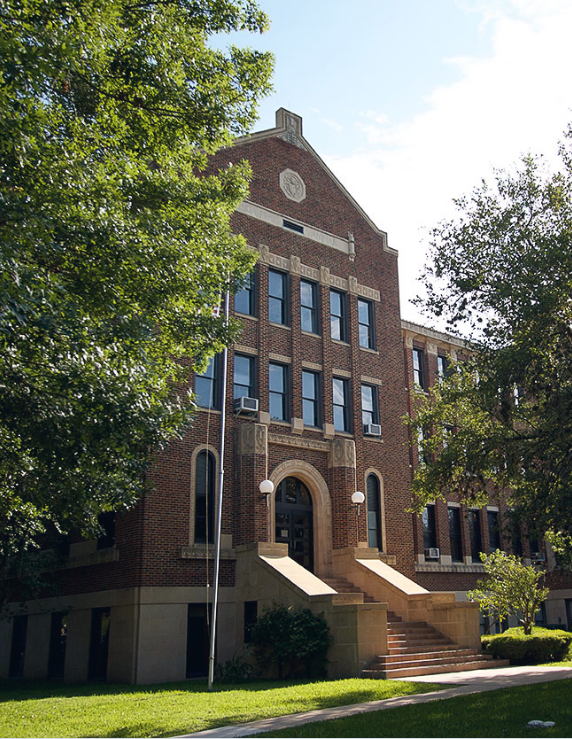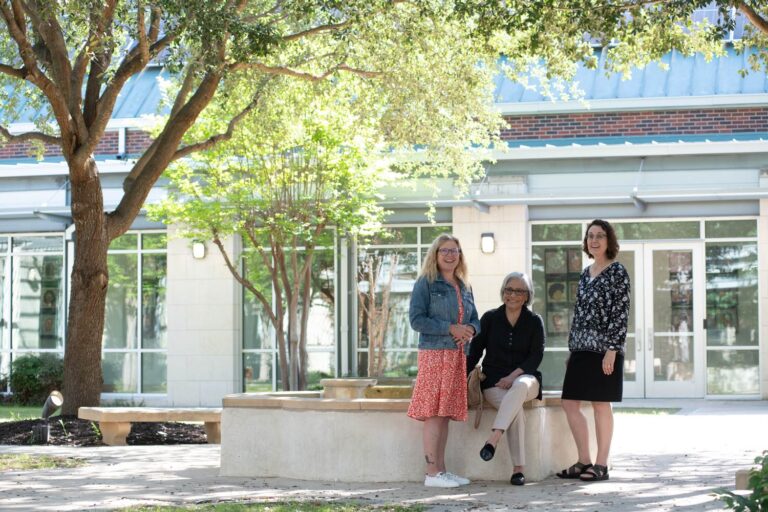“OST is well situated for such a program. We’re in a historically bilingual, bicultural city with a large Spanish-speaking population, and we’ve been engaged in preparing candidates for ministry in Spanish since our founding in 1903.”
Oblate School of Theology (OST) has received two grants totaling $65,000 from the Association of Theological Schools that will enable the School to offer the Master of Arts in Pastoral Ministry degree entirely in Spanish, recognizing the realities of Hispanic cultures, and to develop teaching paradigms for the growing cultural and ecumenical diversity at OST.
The first grant of $50,000 will be used to develop the necessary resources and infrastructure for the program itself. The second grant of $15,000 will be used for faculty development to address the challenges of teaching second-language students from Hispanic cultures and teaching primarily African-American students from diverse non-Catholic backgrounds.
OST has offered an accredited Master of Arts in Pastoral Ministry for many years, but it has always been offered like other professional degrees here – primarily in English, with some Spanish possibilities available for students developing language skills in English. An increasing number Latino/a professionals, mostly but not only from South America, are asking for such a master’s program in Spanish. Some intend to remain in the United States; others, to return to ministry in Latin America.
“OST is well situated for such a program. We’re in a historically bilingual, bicultural city with a large Spanish-speaking population, and we’ve been engaged in preparing candidates for ministry in Spanish since our founding in 1903,” said Dr. Scott Woodward, Vice President for Academic Affairs and Dean. “Our own full-time faculty can provide most of the typical core MAPM coursework in Spanish. Five full-time faculty are native Spanish speakers, as is a faculty member currently pursuing doctoral studies who will return in three years. Another full-time faculty member is fluent in Spanish. We also have access to bilingual adjunct faculty in the community.”
However, he continued, OST needs the financial resources for the research, consultation, release time for faculty, initial staff assistance and acquisition of learning resources necessary for such a program. “Our preference would be to develop this program in collaboration with other institutions in San Antonio, such as the Mexican American Catholic College and the University of the Incarnate Word; however, we see ourselves as the primary agents and institution for such an endeavor, given our history, graduate theology focus and resources. Both MACC and UIW have undergraduate capabilities that would help in developing access routes for students taking certificate programs in Spanish who want to move on to higher studies in theology.”
Goals for the innovation grant are to develop a master’s program in pastoral ministry in Spanish that is attentive to Latino/a sociocultural realities and employs Latino/a pastoral theological resources, develop access routes for Spanish-speaking students to enter the MAPM program, build a consortium of institutions that will cooperate in offering specialized programming in Spanish for the program and identify and implement specific teaching and learning approaches that provide well-rounded formation in ministry for Spanish-speaking students.
Dr. Woodward said that a Master of Arts in Pastoral Ministry program in Spanish doesn’t mean simply translating the current MAPM program into Spanish. “It requires thoughtful adaptation to Hispanic cultures and learning styles. Many are oral/visual learners, and they typically appreciate group learning rather than individual study. Hispanic pastoral ministry and theology advocate a shared comprehensive approach to study and practice. While OST has years of experience forming students of Hispanic descent for ministry, we must acknowledge that many of our course and teaching strategies are not sufficiently attuned to Hispanic realities.”
The grant proposal to ATS noted that of the total spring 2017 enrollment at OST, 29 percent were Hispanic/Latino, 20 percent non-resident aliens from Argentina, Canada, Colombia, India, Kenya, Mexico, New Zealand, Nigeria, the Philippines, South Korea, Vietnam and Zambia. In addition, 10 percent of the student body are black/African American and six percent are Asian/Pacific Islanders. Eight of the African American students are Protestant.
The faculty development grant will enable OST to better adapt the teaching strategies employed by the faculty to the cultural learning styles of our diverse student body, to assist faculty in identifying areas in their syllabi which would be challenging to Protestant students and to strengthen course content to address Protestant theological issues. Dr. Woodward stated, “Those Christians from other traditions who come to OST do so because of who we are, so we are not interested in changing that. Rather, we want to be able do what Catholic ecumenical theology calls us to do, present the faith in language that is understandable to all Christians.”
Other goals are to help faculty identify areas in which Hispanic students struggle in their graduate learning process in the United States, to help faculty design and implement learning activities that could address these areas, to help faculty research materials in Spanish that students could use to complete their readings and assignments.
Current plans are to design the project during the fall of 2017, implement new models of education and practice during 2018 and assess these models and practices in the spring of 2019.
By J. Michael Parker



